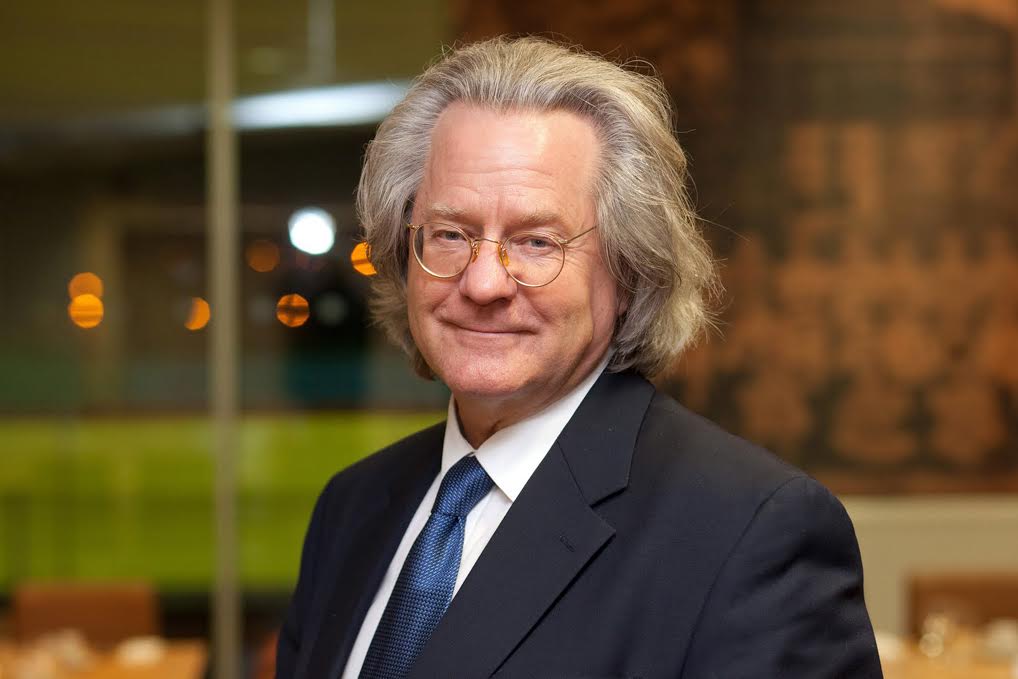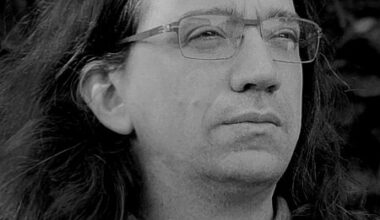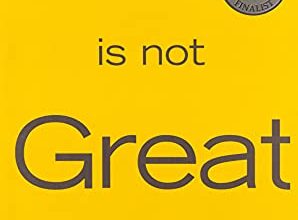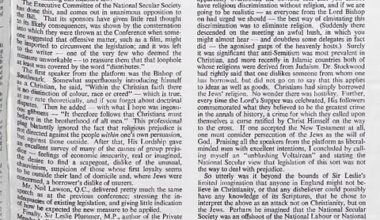April 2022 is Secularism Month at the Freethinker. We kick off with an essay by philosopher A.C. Grayling on the relationship between atheism, secularism, and humanism, and some problems with the concept of religion.

According to the Oxford English Dictionary, the term ‘freethinker’ denotes a person who ‘forms their own ideas and opinions rather than accepting those of other people, especially in religious teaching’. There is a nice ambiguity in this definition’s final four words, because they apply as much to people who have religious beliefs which are heterodox or idiosyncratic as to people who reject the claims of religion altogether. The definition therefore does not help much, for ‘religion’ is itself a term of ill-defined scope, applied with equal abandon to Confucianism, Buddhism and Jainism (which are not religions but philosophies, not being predicated on the existence and activities of a god or gods) as to Judaism, Christianity and Islam (which are paradigmatic examples of religions, essentially characterised by commitment to the existence and interested activities of a god).
The lexical unclarities that abound in this domain make it easy for espousers of a religious outlook to defend their stance; ‘that is not what I mean by “god”’ is a standard move if a believer wishes to avoid a frank acknowledgement that the motive to religious belief is a non-rational one – i.e. is emotional and/or or the result of childhood upbringing and community pressure, these being the almost invariable explanations for adherence to a religion. Given the fact that it is nigh impossible to reason people out of views they were not reasoned into, the project of demonstrating to believers the incoherence and vacuity – and frequent harmfulness – of their beliefs is a thankless one. But the prospect of liberating a mind from antique superstition into the broader landscapes of free thought encourages one to try anyway.
A first and very important step is to achieve a ‘rectification of names’, which is what the ancient Chinese Confucian philosopher Xun Kuang (Xunzi) called his project for conceptual clarity. In what follows I do this for the terms ‘atheism’, ‘secularism’ and ‘humanism’, whose connections, overlaps and significant differences are frequently misunderstood. But first the term ‘religion’ and its relation to ‘theism’ needs clarification, given that each of the three ‘—isms’ which are my primary focus stand in opposition to what religion and theism are and involve.
‘Religion’ derives from Latin religio, religere, ‘to bind’. We get ‘ligament’ and ‘ligature’ from the same source. In Roman antiquity religious festivals were public events designed to bind together the diverse peoples and traditions of a vast empire. By that time the forces and powers once invoked by our more distant ancestors as explanations of wind, thunder and indeed all natural events, had long been anthropomorphised into named gods with personalities and spheres of influence, and had become the various foci of these activities, as the world’s mythologies show. This proto-science of our earliest ancestors (their explanation of natural events as the activity of conscious agents) had become superstition (credulities and associated observances aimed at influencing those agencies) and religion (systematised belief in and worship of those supernatural agencies) as we now know it.
What differentiates a religion specifically as such from any other system of conceptual commitments is that it is centred upon belief in supernatural agency in or associated with the universe, the ‘or associated with’ qualification required if the supernatural agency is said to be outside space and time (e.g. ‘eternal’, ‘infinite’). In more familiar terms, religion is defined by belief in the existence of a god or gods, frequently along with a set of practices consequential on that belief. Long before discussion of any traditional or revealed religion such as Christianity or Islam can be supposed worthwhile, this fundamental idea of supernatural agency – the defining feature of theism – has to pass scrutiny; if you take the axe to this root, the rest of the many-branched tree of religions comes crashing down.
Here is where the first ‘—ism’, atheism, is relevant. The debate between atheism and theism is a metaphysical debate; it is about what exists, and in particular whether, in addition to nature, there are entities – beings, agencies, entities – that are not part of nature, not subject to natural laws, yet somehow able to intervene in nature and (according to the various religious traditions) miraculously suspend or divert nature’s laws. The nature and powers of such entities are defined by negation on the nature and powers of human beings, thus: humans are mortal, limited in both physical and intellectual powers, time-bound, earth-bound (without help of machines), otherwise generally impuissant, and most certainly imperfect. God or gods are the definitional opposite: immortal, omnipotent, omniscient, eternal, and perfect.
Numerous tomes have been written on either side of the question whether the concept of such entities makes sense, let alone whether such entities (or at least one) exist. I shall restrict comment here to two points.
The first is owed to Karl Popper, who observed that if nothing counts as counter-evidence to a claim, the claim is empty. To have content, the claim that supernatural entities exist must tell us what would count as showing that they do not exist. For example, the presence of natural evil in the world (childhood cancer, tsunamis that kill indiscriminately, etc.) appears inconsistent with the idea of an omnipotent and benevolent god who is interested in humanity. This is the ‘problem of evil’ so vexing to theologians, who have to provide a theodicy (the task of ‘justifying the ways of God to man.’ as Milton put it) to explain away the inconsistency. Theodicians attempt this by saying that our arbitrary sufferings are part of some larger plan inscrutable to us, and that in some outcome there will be compensation for it. This is the prime example of an escape-clause of the kind that is stock-in-trade for theodicy; appeal to the ineffability, inscrutability, infinity – thus transcending our finite capacities to understand – of deity as a general Get Out Of Jail Free Card. This makes the claim that such a thing as deity exists unchallengeable; it is consistent with anything and everything. On Popper’s principle, this makes the claim vacuous. Next: if some putative thing defies any characterisation, and is consistent with anything whatever, it has to be asked whether there is any such thing, indeed whether the concept of it even makes sense.
Another way to illustrate the vacuity charge is to substitute the name ‘Fred’ for the word ‘god’ in such assertions as ‘god created the universe’, ‘god is love’, ‘god is infinite’ and so on: ‘Fred created the universe’, ‘Fred is love’. One is immediately prompted to wonder who or what Fred might be, whence Fred, and why Fred – questions that by tradition the word ‘god’ stops at source. The substitution of ‘Fred’ illustrates the vacuity of such expressions as ‘god created the universe’ and ‘there is a god’ (‘there is a Fred’).
My second point relates to the claim by theists that ‘you cannot prove that god does not exist’. If this were true, it would not be a reason for thinking even so cautious a thought as that deity might exist, still less that it does exist. But it is not true; one can prove that deity does not exist, as follows.
Note first what is meant by the concept of ‘proof’. In a formal system such as logic, proof is deduction of a conclusion from premises, the conclusion consisting merely in a rearrangement of the information in the premises. (Though this is ‘merely’ a rearrangement of information, it can have psychological novelty: think of a detective scrutinising the evidence pinned on the board in the police station, waiting for the right arrangement to tell her the answer). But in the contingent, real-world case, ‘proof’ means ‘test’: in a steel factory the sheets or rods are ‘proved’ by testing what loading they will bear; we say ‘the proof of the pudding is in the eating’; when we talk of the ‘exception that proves the rule’ we mean the limiting case that tests the applicability of a rule.
We can now ‘prove’ – test – the claim about deity, in the manner illustrated by Carl Sagan’s famous ‘Dragon in the Garage’ example. Your friend says he has a dragon in his garage. You say you want to see a dragon. He says, sorry but the dragon is invisible. You say, can I hear it flapping its wings? He says, it’s silent. You say, can we put talcum powder on the floor and see its footprints? He says, it never lands on the floor. You say, can we feel its fiery breath? He says, this dragon has cool breath. And so on. You have tested your friend’s claim to have a dragon in his garage; it has not passed the test. His only resource is to make it a transcendent dragon, non-spatial, non-temporal, undetectable, though now he has a problem about it being ‘in’ (spatially located) his garage. This game can go futilely on. But note that the definition of ‘nothing’ and ‘not detectable by any means’ are suspiciously coterminous.
The transcendence move is a reprise of the point made above about definitions of deity turning on the combination of negation with adjectives that describe human features (humans are mortal, gods not-mortal, humans are finite, gods are not-finite i.e. infinite, humans are imperfect, gods are not-imperfect i.e. perfect, etc). Now note that whereas we understand all too well, alas, what it is to be mortal and imperfect, we do not understand what is meant by the terms that result from putting ‘not’ in front of these words. The illusion of understanding is created by a simple linguistic device – prefixing ‘not’ or a negating particle such as ‘un-‘ or ‘im-’ to a word we do understand, and pretending that we understand the result. But these terms describe nothing we know or could recognise; they are empty expressions. This is no surprise; natural language is recursive; an infinite number of grammatically well-formed sentences can be generated in it (you can make infinitely long sentences by simple iterations of ‘and’); so, given that we are finite creatures, it follows that there will be infinitely many grammatical sentences that do not express a thought, such as ‘I can trisect a Euclidean plane angle using only ruler and compass’ (a logical impossibility, hence unthinkable – but sayable).
The vacuity of the terms used to characterise deity is the source of an allied problem: contradiction. The idea of an omnipotent being is the idea of a being that can do anything. If this claim is taken at face value, then such a being can eat itself for breakfast, make itself cease to exist, make itself exist and not exist at the same time, persuade the finite beings it creates, if any, that terrible evils are great goods, and so on for any candidate act. Obviously, defenders of the idea that there are omnipotent beings, or at least one, would say this is nonsense. But that applies a restriction to the potency of the being to forms of existence, and powers, that – well, what? – conform to the dictates of logic? Disable it from acting in ways contradictory to the properties of its being, whatever these are? At very least, such questions illustrate that claiming that ‘deity is omnipotent’ has no clear sense. The same applies to the other alleged properties. Once again the move to ‘we finite beings cannot understand deity’ will come to the rescue, and once again it will invite the response that if some putative thing defies any characterisation, it must be asked whether there is any such thing at all.
One could go on multiplying considerations about the incoherencies in concepts of deity, but this might be enough to show that the theism-atheism debate about metaphysics, turning as it does on undefined concepts and the ‘ineffability’ escape-clause, is an empty one in the sense that there is nothing other than smoke and mirrors to talk about. Insofar as discussion of religion has content, the content is historical, sociological and psychological, not metaphysical; it is about religion as a man-made artefact, a social institution, and its character and effects as such.
A final twitch of the metaphysical debate might, however, invoke this socio-historical dimension by asking what are the grounds for thinking that there might be any such things as gods. There are two: tradition, and alleged personal encounters with deity. The latter have to be excluded from attempts to persuade a sceptic that there are such things as gods, because the alleged encounters are impossible to distinguish from psychological phenomena of well-known kinds such as hallucinations, psychotic states, experiences induced by mind-altering substances, dreams, and the like. The striking inutility of pronouncements from the divine, as claimed by their recipients, is another factor: nothing has been learned about quantum theory, the future, or indeed anything useful, from the sporadic and arbitrary communications allegedly received – such as appearances of the Virgin Mary, for example. But neither is tradition a reliable ground for belief – much the contrary. To place reliance on such traditional beliefs as that the earth is flat, that you can overcome your enemies by sticking pins into dolls representing them, and so on, is poor policy. Whatever is inherited from the past and has continuing utility does so because it maintains its claim in the present, where it can be tested and evaluated with present resources.
Finally, note that ‘atheism’ is a theist’s term. The analogy of stamp collecting – atheists are to theists as people who do not collect stamps are to stamp-collectors – is instructive. Non-stamp-collectors would be ‘a-stamp-collectors’ on this analogy. But to be an a-stamp-collector is not to do anything, that is, it is not to ‘not collect stamps’, as if this were an action of some kind, any more than being an atheist is ‘having a non-belief about gods’. Most people are a-fairy-ists, a-gnome-ists, and so on, in not believing that fairies or gnomes exist. This is not something they do. To not have a belief is not the same thing as ‘believing not’. To ‘believe’ that ‘x does not exist’ is made to sound as if it is an ‘act’ (rather than a state) of ‘not-believing’. But how can you ‘not-believe’ in any ‘nothing’? You would be tremendously busy, given that the complement set of everything that you have some ground to regard as existing, is infinite.
This is why there cannot be ‘militant atheists’, any more than there can be ‘militant non-stamp-collectors’ – for, how might you militantly not collect stamps? Thinking that Christopher Hitchens and Richard Dawkins (or the present writer) are ‘militant atheists’ is a category mistake. Christopher Hitchens was a militant antitheist, and so might Richard Dawkins be. Both, and the present writer, are militant secularists, and that is quite a different matter.
Secularism – now turning, courtesy of this nice segue, to the second of our ‘—isms’ – is often, but too narrowly, described as the view that ‘church and state should be kept separate’. So they should. A better description, however, is that it is the view that questions of public policy and government should not be subject to the beliefs and influence of partisan religious groupings or outlooks. Secularists argue that religious commitment should essentially be a private matter, though on liberal principles it acknowledges that religious movements have every right to exist – so long as they do no harm to others – and to offer their views in the public debate in the hope of influencing that debate in their preferred direction. But in doing this they should recognise that they are self-selected interest groups like trades unions, the Women’s Institute, NGOs, political parties, and so on, and that the degree to which they are listened to has to be proportional to the degree of support they receive from society. They have to take their turn in the queue with everyone else.
In England (not the UK as a whole) there is an ‘established church’. Twenty-six bishops (plus retired bishops with life peerages) can sit in the House of Lords and vote on legislation that effects everyone – including everyone in other countries of the UK. About 3% of the population of England go regularly to Church of England religious services. There is thus a wild disproportion between the size of the Church of England’s footprint in the public square and its active support as an institution. The result is that the religious voice (the voice of religion as such, not just the Church of England) has a megaphone in the public conversation, an automatic place at the head of the queue of self-selected interest groups. This is indefensible. Mutatis mutandis, any society where religion has an overweening influence in the public square is distorted thereby. Science, medicine, education, interpersonal relationships, freedom of expression, personal autonomy, the human rights especially of women and gays, are all to various degrees compromised by religious influences wherever these gain too much sway. In Muslim-majority countries, as in any religion-dominated community – for example, among fundamentalist Christians and Hindus and ultra-orthodox Jews – the possibility for other voices to be heard, other civil society organisations and initiatives to play a part, is squeezed out.
This is what secularism opposes. Of itself it does not oppose people holding religious beliefs and practising the associated observances (always subject to the ‘harm principle’ – viz. that they do not thereby do harm to others, not least those who do not share their views), though naturally it would prefer religion to go the way of astrology and likewise cease to have more than a minimal effect on public concerns. (And yes, I know that Nancy Reagan had President Reagan’s horoscope cast each day.)
Thus understood, secularism is about making the public square a place for everyone to participate and, when it comes to decisions about what is to be done, for social tendencies to have an influence proportionate to the support they have or consent they can invite. A militant secularist is one who combats the overweening efforts of religious groupings to suppress choices and alternatives in society, to impose a morality, to deny rights to gays and women, to prevent certain lines of scientific research, and the like. He or she might work not just to diminish the influence of religion but to discourage it as one might discourage (say) smoking, as bad for people. A very militant secularist might seek to expunge religion altogether, as the Soviet Union attempted to do – a likely recipe for failure, as in efforts to separate your daughter from an unsuitable boyfriend, thus bonding them all the more tightly together.
The final ‘—ism’ is the one that most interests me: humanism, understood in its modern sense as a non-religious ethical outlook that seeks to promote the flourishing and fellowship of humanity in all its diversity and individuality, and to enhance its mutually-shared responsibility for the world, both social and natural, which is our global home. Its roots lie in the Socratic tradition of philosophical ethics, drawing on the Aristotelian, Stoic and Epicurean schools of thought as eclectically adopted by thinkers such as Cicero, Seneca and Marcus Aurelius, and transmitted through Renaissance and Enlightenment thought to the present. Humanist movements such as the International Humanist and Ethical Union and Humanists UK summarise their outlook as in the first sentence of this paragraph.
Humanism is predicated on the idea that we human beings should have as our default in encountering one another a sympathetic and generous attitude of welcome, a recognition that our shared humanity is a larger and more important thing than any difference caused by history, culture, ethnicity, gender, or other potentially separating factor thus adventitiously based. Of course we must have standards: we must at the minimum expect of one another trustworthiness and mutuality, fellow-feeling and co-operation, though we must also always hope for kindness as we must always seek to feel and enact it. Obviously enough, anyone who is unkind, dishonest, selfish, and worse, deserves sanction.
As it applies to practical matters, humanism premises a commitment to the idea that ethics and social policy must be based on our best understanding of human nature and the human condition. It is a concern to draw the best from, and make the best of, human life in its frame of a human lifetime, in the real world, and in sympathetic accord with the facts of humanity in the world. By immediate implication, therefore, it rejects transcendentalist claims about the source of value and morality, in particular those associated with religion. It is not the same thing as either secularism and atheism, but it has a natural affinity with both and especially the former.
A humanistic view is a starting-point, not a finished body of doctrine. There can be and indeed is much debate about what the human good is and how it can be attained, and that debate ranges from matters of ethical theory to the practicalities of politics, with humanists voicing different positions across the range. What they have in common is the starting point that such debate is about humanity in the real world, not the supposed intentions and commands of supernatural agencies to which human nature must be adapted in order to conform.
The actual word ‘humanism’ has had a variety of different uses since its first coining in the Renaissance. But although the word has a relatively short and complex history, the current meaning given here applies to the tradition of ethical thought stemming from classical antiquity, older by a millennium than the young religions of Christianity and Islam, and much richer and deeper than they. (Christianity was declared the official and exclusive religion of the Roman empire by the Edict of Thessalonica issued by Emperor Theodosius I in 380 CE; Islam followed three centuries later). This tradition has been the mainstay of Western ethics, for it provides the chief content even of applied Christian ethics, having been borrowed by the Church after it became clear that the ‘Second Coming’ was postponed sine die, and Gospel ethics (‘give away all your possessions, make no plans, turn your back on your family if they try to stop you, don’t marry’) was hard to live.
In the Renaissance the rediscovery of classical letters prompted a spirit of learning that was broader, fresher, more open and humane than the narrow theological preoccupations that had dominated the middle ages. Renaissance or ‘literary’ humanism was chiefly concerned with the study and enjoyment of the humanities. At this time it was possible for more enlightened individuals to enjoy the classics and the wider perspective they afforded while retaining their religious faith; hence the hybrid term ‘religious humanism’ which some with more interest in the first than the second term employ.
There is, however, an outstanding example of a ‘religious humanist’; Erasmus of Rotterdam, who for a time was highly influential in the culture of Europe, and whose writings had the effect of weaning some from the confines of religious orthodoxy if not orthopraxy, this latter being a step too far in the era of the Inquisition. Because the delights of classical literature always threatened to liberate minds in this way, both the Roman and the reformed churches in the sixteenth century endeavoured to suppress interest in the classics, and to substitute something more acceptable. Sebastian Castellio’s translation of parts of the Bible into beautiful Ciceronian Latin became a classic in its own right for this reason, because it gave schoolboys a good Latin model without undermining their morals, as Ovid and Virgil were likely to do.
In the United States some Unitarian and Universalist groups like to call themselves ‘humanists’, as to all practical purposes they are; real humanists often remark that such folk take religion out of religion while retaining the name for reasons unfathomable, unless they use ‘religion’ as a misnomer for ‘attitude to life’ or as akin to its metaphorical use in ‘football is his religion’. Either way the usage merely introduces muddle where there is no need for it, given that the premise of humanism, as described here, is that the most important of all questions, viz. the ethical question of how we should live, is to be answered by appeal to facts about human nature in the real world, and not from religious or supernaturalistic doctrines.
Secular humanism, given its first full expression in the Enlightenment of the seventeenth and eighteenth centuries, is functionally the basis of subsequent developments in science, technology, democratic institutions and concepts of human rights.
One of the largest influences on Renaissance humanism, as implied above, is the writings of Cicero, both for the beauty of their language and their rich matter. Erasmus said that whenever he read Cicero’s On Old Age he felt like kissing the book, and thought the great Roman should be called “St. Cicero”. Cicero was also Petrarch’s favourite, and others among his admirers took an oath never to write Latin in any but his way and with any but his vocabulary. One of the chief Ciceronians was Pietro Bembo (1470 – 1547), one of the Latin secretaries to Pope Leo X, who with his friend and fellow Latin secretary Jacopo Sedaleto led the movement known as “Ciceronianism” aimed at standardising Latin on the Ciceronian example. Bembo had a magnificent library at his home in Padua, wrote beautiful Latin and Italian, and dedicated a dialogue on Platonic love to his friend Lucrezia Borgia, modelled on Cicero’s Tusculan Disputations.
The Renaissance valued Cicero not merely for his style but his humanism in the modern sense, expressed as belief in the value of the human individual. He argued that individuals should be autonomous, free to think for themselves and possessed of rights that define their responsibilities; and that all men are brothers: “There is nothing so like anything else as we are to one another,” he wrote in On Laws, adding that “the whole foundation of the human community” is the bond between individuals, which he said should consist in “kindness, generosity, goodness and justice.” The endowment of reason confers on people a duty to develop themselves fully, he said, and to treat one another with generosity and respect. This outlook remains the ideal of contemporary humanism today.
In contrast to the certainties of faith, humanism has a humbler conception of the nature and current extent of knowledge. The enquiries that human intelligence undertakes to enlarge knowledge always generate new questions. To live with this open-endedness and uncertainty, trusting to reason and experiment to gain us increments of understanding, having the integrity to base one’s theories on testable foundations, and being committed to changing one’s mind when shown to be wrong, are the marks of intellectual honesty and courage. In the past people were eager to clutch at myths and superstitions to attain quick and simple closure on anything they did not understand, to make it seem to themselves that they did understand. Humanists recognise this historical fact about the function of mythologies in all their forms, and sympathise with the needs that drive people in that direction. But they point out to such that what feeds their hearts and minds – love, beauty, music, sunshine, mountain vistas and sparkling seas, friendship, the satisfaction that comes from successful effort – is more than the imaginary can ever give them, and that they should learn to redescribe these things – the real things of this world – as what gives life the poetry of its significance.
A distinctive feature of humanism, and one of great importance, is that it places responsibility for ethical choices on each of us individually. The religions – indeed, all ideologies, whether religious or political, which claim to have the answer to everything and require everyone to accept it and conform themselves to it in unison – offer a one-size-fits-all model and expect (once in Christianity, still in parts of Islam: on pain of death) obedience to it. This cuts across diversity and individuality, valorises unquestioning faith, and requires uniform submission. These are the opposite of values of individual responsibility and the curiosity and healthy scepticism that drives progress in knowledge. History amply demonstrates that imposed orthodoxies are stifling, and societies subjected to them stagnate.
The idea of individual responsibility prompts anxieties about moral relativism. If each decides how to live for himself or herself, will there not be clashing values and therefore, possibly, strife? This overlooks the point that humanism recognises objective constraints on how we treat others (and the world we share): there are facts about human (and other sentient beings’) experience of pain, cold, hunger, fear, and loneliness – and of oppression, injustice and discrimination – which tells us a great deal about how we ought to behave in response to facts about such experience. This repudiates the view, so widely adopted in philosophy, of David Hume that one cannot deduce statements about what ought to be done from statements describing how things are, the ‘no ought from is’ point. The very ideas of pain, hunger and loneliness, all forms of suffering, are intrinsically evaluative; recognising that someone is suffering is sufficient to identify the appropriate response. Consider what we think of the person who walks by someone lying injured and in agony on the street.
Humanism’s desire to learn from the past, its exhortation to courage in the present, and its espousal of hope for the future, are focused upon real things, real people, real human need and possibility, and the fate of the fragile world humanity inhabits. It is about life as we live it; it requires no belief in an after-life. It is about this world; it requires no belief in another world. It requires no commands from divinities, no promises of reward or threats of punishment, no myths and rituals, either to make sense of things or to serve as a prompt to the ethical life. It requires only clear thinking, sympathy, and reason.
The values of humanism require a secular setting as described above. They do not necessarily require atheism, though it is hard to see how theistic commitments can survive rational evaluation if their emotional and social drivers are set aside, and in not requiring promises of reward or threats of punishment from a deity its ethics makes a theistic component redundant at best – though on the too-common observation that religion is capable of making good people do bad things, there is great profit in its absence from ethical debate. Accordingly all three ‘—isms’ go naturally together; there are religious folk who are secularists, but there are very few atheists who are not humanists, and very few atheists and humanists who are not secularists.









2 comments
Great article and good to see Karl Popper getting a mention. I particularly liked the reference to Carl Sagan’s “Dragon in the Garage” example of proving the non existence of a deity. A very welcome addition to the Freethinker canon of writing on Atheism, Secularism and Humanism.
‘Atheists’ are defined by the prevailing ‘Theism’ they reject: Jews and Christians were labelled ‘atheists’ when they declined to honour the classical gods! So I prefer labels like Agnostic, Freethinker and Secularist.
Your email address will not be published. Comments are subject to our Community Guidelines. Required fields are marked *
Donate